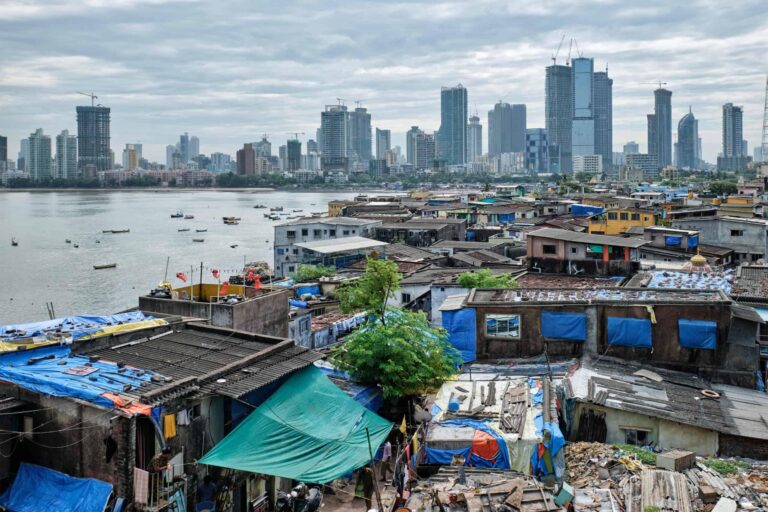India faces a monumental challenge in financing climate-resilient infrastructure, with the World Bank estimating a staggering $2.4 trillion investment required by 2050. According to a recent report cited by Reuters, this funding is critical to equip Indian cities to withstand the escalating impacts of climate change, including rising temperatures, flooding, and extreme weather events. As urban populations continue to swell, the urgency to build sustainable, adaptive infrastructure has never been greater, placing immense pressure on policymakers and stakeholders to mobilize resources and implement effective strategies.
Indian Cities Face Massive Climate Infrastructure Funding Gap
Rapid urbanization and escalating climate risks have brought to light an urgent need for substantial investments in India’s urban infrastructure. According to the latest analysis, Indian cities will require a staggering $2.4 trillion by 2050 to build resilient climate infrastructure capable of mitigating flooding, extreme heat, and water scarcity. This funding gap highlights the challenge of balancing economic growth with sustainability in an environment where municipal budgets are already stretched thin.
Key sectors demanding immediate attention include:
- Water supply and sanitation – Upgrading aging systems to ensure reliable access amid changing weather patterns.
- Green transportation – Expanding public transit networks while reducing carbon emissions.
- Stormwater management – Developing flood defenses and drainage infrastructure to combat monsoon extremes.
| Sector | Funding Required (in billion $) | Projected Impact |
|---|---|---|
| Water & Sanitation | 800 | Improved resilience to droughts |
| Transport | 700 | Reduced urban emissions |
| Energy | 500 | Increased renewable capacity |
| Flood Management | 400 | Minimized flood damage |
World Bank Highlights Urgent Need for Investment in Sustainable Urban Development
The World Bank has underscored a pressing demand for massive financial commitments to address the escalating climate challenges faced by Indian urban centers. According to recent findings, cities across India will require an estimated $2.4 trillion by 2050 to develop resilient climate infrastructure capable of supporting rapid urbanization while curbing environmental degradation. This investment is critical to facilitate the transition towards sustainable public transport systems, effective waste management, water conservation, and green energy integration.
Key focus areas highlighted include:
- Flood and heatwave mitigation through smart urban planning
- Expansion of low-carbon transport networks and cycling-friendly infrastructure
- Water resource management to ensure sustainability amid rising demand
- Renewable energy implementation across municipal services
| Sector | Estimated Investment ($ Billion) | Expected Impact |
|---|---|---|
| Public Transport | 600 | Reduction in carbon emissions by 40% |
| Water & Waste Management | 500 | Improved urban sanitation and water efficiency |
| Renewable Energy | 700 | Energy mix shift with 60% renewables by 2050 |
| Climate-Resilient Infrastructure | 600 | Decreased vulnerability to extreme weather events |
Experts Call for Strategic Policy Reforms and Public-Private Partnerships
Leading urban planners and economists emphasize that tackling the immense funding gap for climate-resilient infrastructure in Indian cities requires more than just increased government spending. They urge the immediate implementation of strategic policy reforms aimed at streamlining regulatory frameworks, unlocking innovative financing mechanisms, and incentivizing sustainable development practices. Experts highlight that these reforms must focus on enhancing transparency, reducing bureaucratic delays, and fostering an environment conducive to green investments.
In tandem, there is a growing consensus on the importance of robust public-private partnerships (PPPs) to mobilize the vast capital needed. Such collaborations can leverage private sector efficiency and innovation, ensuring scalable and cost-effective solutions to urban climate challenges. Key areas identified for PPP engagement include:
- Renewable energy infrastructure
- Waste management and circular economy projects
- Water conservation and efficient urban drainage
- Smart transportation and low-emission transit systems
| Reform Area | Expected Impact | PPP Role |
|---|---|---|
| Regulatory Simplification | Faster project approvals | Facilitates smoother contract execution |
| Green Finance Incentives | Increased investment flow | Attracts private capital participation |
| Technology Adoption | Enhanced energy efficiency | Drives innovation and scale |
Future Outlook
As Indian cities brace for the mounting challenges of climate change, the World Bank’s projection of a $2.4 trillion investment highlight underscores the immense scale of infrastructure transformation required by 2050. Addressing this funding gap will demand coordinated efforts from government agencies, private sector stakeholders, and international partners to build resilient urban environments capable of withstanding future climate risks. The path ahead is complex, but the urgency for sustained action has never been clearer.




